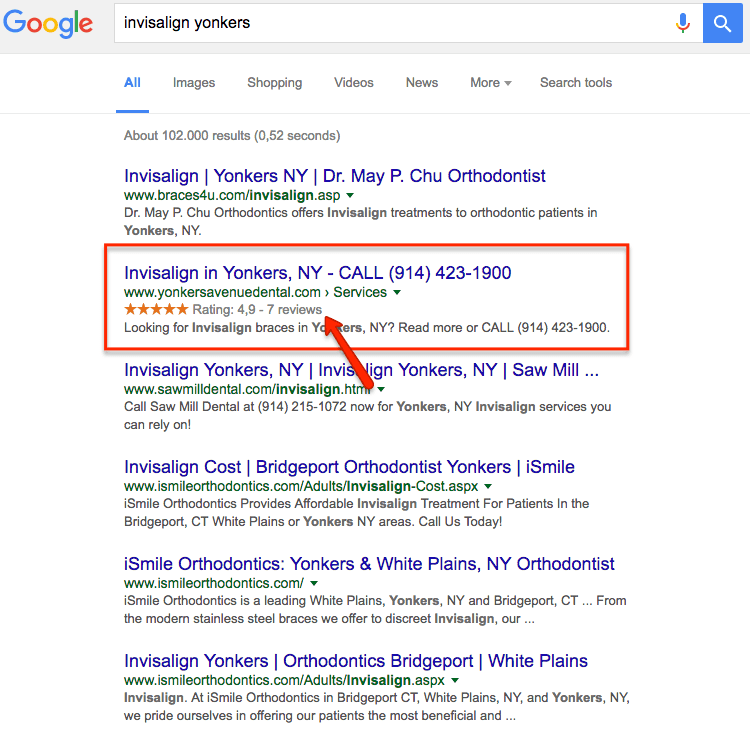When you're looking for the best of anything, you're first stop is likely on Google, trying to find out where or what you should look into more. Google is a great tool that, at this point, we all use for decisions both big and small; it's a Google search that tips the scale as you decide where to spend your dollars. But there's something you should know about one of Google's most powerful results page features. .png?width=695&name=Copy%20of%20NONPROFITS%20(5).png)
In this article the author from WhiteSpark explains how to use aggregate review schema to get stars in the search results for local business. Too complex? Well basically, there's a way to control how the stars appear under your results position in a user's Google search. Whether you're a marketer looking for a way to set your business apart online, or a user who's trying to understand what to buy, check out this scenario.

How? Let's build an example.
Example Biz does the following:
- Optimizes a website with JSON-LD like this
- Secures payment for service or product
- Completes service or deliver product
- Issues review to their client (possibly with an incentive like a coupon after completion)
- Begins an editorial process to select which reviews to post to website, which to not
- Lets your website's scripts provide Google with the values for reviews
Results:
- Internal review process may produce the results you desire. These appear on Google search results.
- External review process produces the results that users who reviewed your business experienced. This is preferred by Google!
Advantages:
- People are reviewing the service through an internal process
- More people review the service through controlled platform because this org has remained in front of them (probably why AAA has more reviews on Customer Lobby)
- Allows for more control over how reviews are perceived
Disadvantages:
- If not used with extreme discretion and accuracy, may lead to a deceptive user experience in the SERPs
- May result in a huge discrepancy amongst averages (If Yelp says 2 stars, Google says 2.4 stars, and your website says 4 stars. What should the user believe?)
- The above two results, in the past, have been enough for Google to change its rules, and in serious cases suppress results on the page
Is this worth it?
Really, this is up to you. With star power comes star-level responsibility! What's nice about this situation is that your business' relationship with Google is really important, so why would you do anything to harm that? For new businesses, this could be a great way to get a few steps ahead. For businesses that have a well-established presence online with reviews on Google, Facebook, Yelp and other places, it provides one more forum for users to celebrate awesome products and experiences and might be an exciting place to experiment with a controlled environment for marketing.
Final thoughts
I suggest that you keep your reviews external, or through a third party to maintain objectivity, authenticity and honest relationships with customers. Encourage customers to review your business through your platform of choice, but don't incentivize good reviews. There are several places for users to review your business, obviously Google is a very accessible one, so take a focused approach that meets your users where they are.